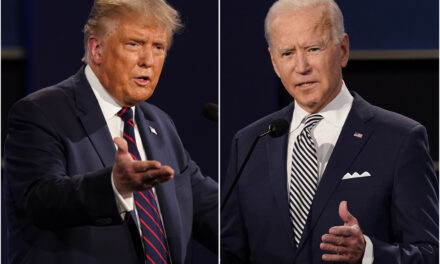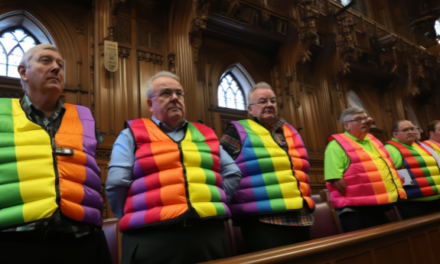In a bizarre attempt to rewrite history and cater to the ever-expanding list of preferred pronouns, a group of misguided individuals has taken it upon themselves to rename iconic Beatles classics. These timeless tunes, once celebrated for their catchy melodies and lyrical genius, are now being subjected to a far-reaching “inclusive” makeover that has left music lovers scratching their heads in disbelief.
The brainchild behind this audacious endeavor is a self-proclaimed expert in linguistics, who believes that the Beatles’ discography is sorely lacking in representation. Consequently, beloved hits such as “Hey Jude” have been rebranded as “They Jude,” in an attempt to accommodate those who identify with non-binary pronouns.
But the absurdity doesn’t end there. Other classics like “Let It Be” have been transformed into “Let It They,” much to the confusion of die-hard Beatles fans. The endeavor, hailed as a triumph of inclusivity by its proponents, has sparked a passionate debate among music enthusiasts and grammatical purists alike.
Critics argue that the alteration of these legendary songs not only undermines the band’s artistic integrity but also cheapens the beauty of their original message. “Hey Jude” was written as a heartfelt anthem of support and encouragement for a dear friend, while “Let It Be” served as a soothing reminder to embrace life’s uncertainties. Now, with their “inclusive pronoun” facelift, the songs have lost their poetic charm and are trapped in a web of grammatical confusion.
The bewildered surviving members of the Beatles have been quick to distance themselves from this linguistic overhaul. Sir Paul McCartney, in an exclusive interview, expressed his disbelief, stating, “I can’t fathom why anyone would mess with the songs that meant so much to so many. Changing the pronouns doesn’t make them more inclusive; it just makes them unrecognizable.”
Despite the uproar and overwhelming backlash from music enthusiasts worldwide, the proponents of this “inclusive pronoun” movement remain defiant. They argue that this is merely the first step in revolutionizing the music industry, paving the way for a new era of politically correct compositions.
As the controversy continues to unfold, one thing is clear: attempting to rewrite the past may leave us with a distorted present. Let us hope that reason prevails, and the timeless legacy of the Beatles remains untouched, a beacon of musical genius unmarred by the ever-changing whims of linguistic fads.
















